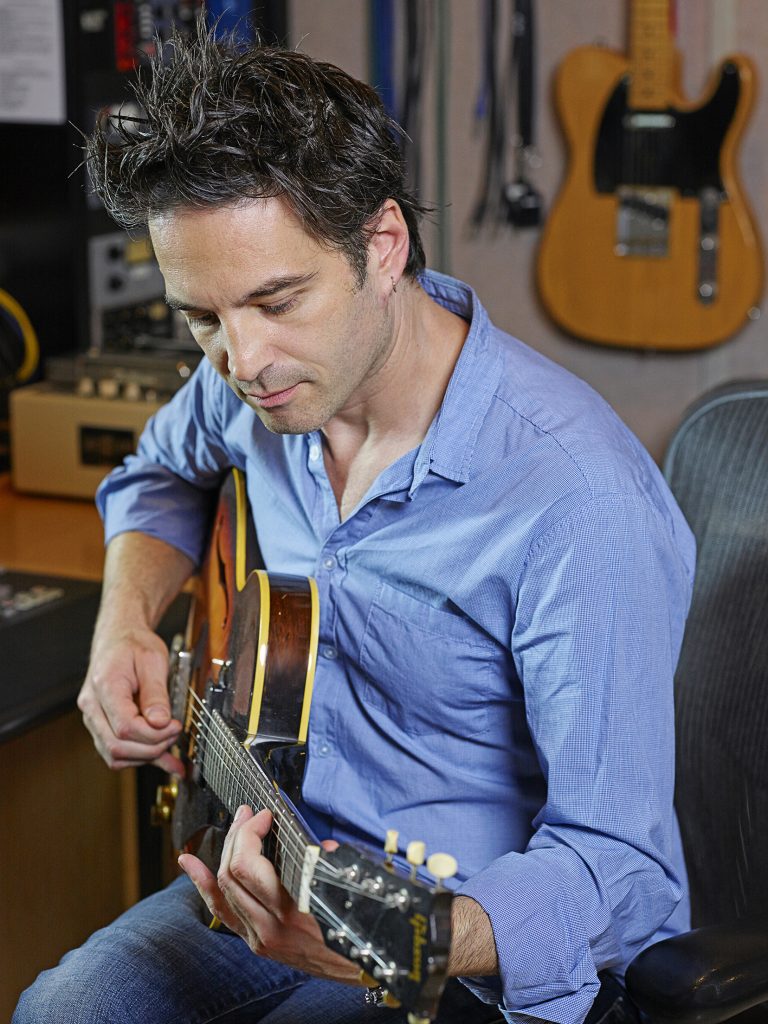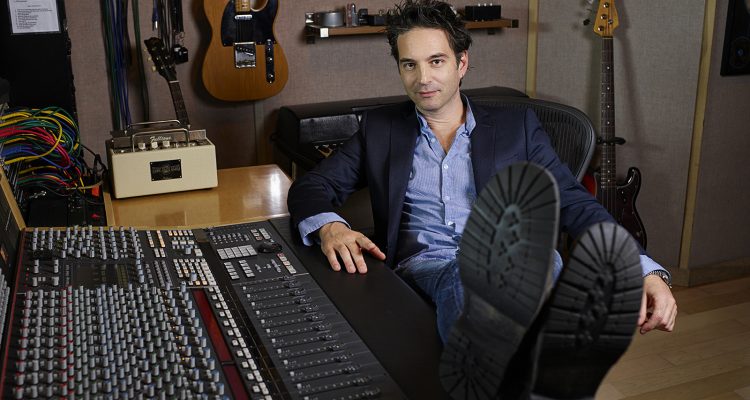Star Trek: Discovery Composer Jeff Russo Discusses Switching Gears for Star Trek: Picard, The Pressure of the Season One Finale, and Guest Stars for Picard’s Second Season
“It was important for me to acknowledge where we’ve been musically.” Emmy Winning Composer Jeff Russo delves into his growing slate of Star Trek projects, his love of Jean-Luc Picard and The Next Generation, and finding ways to honor what came before…
AUDIO: Russo’s Picard score is now streaming on Spotify
NOTE: Awards Focus covered how Patrick Stewart and Alex Kurtzman have made Picard Season One FREE to viewers through April! Read how to stream it HERE.
Before delving into all things Star Trek, National Arts and Entertainment Journalism Award winner Byron Burton provides a more detailed introduction to composer Jeff Russo.
If you’ve tuned into the FX channel in the past five years for one of its original series, you’ve likely been exposed to the inventive work of composer Jeff Russo. An Emmy winner for his work on Fargo, Russo has been the defining musical voice for writer/director Noah Hawley, both on Fargo and his mind-bending Marvel series Legion.
Russo’s work on Fargo is inescapably gripping, characterized by emotional strings mixed with eerie chords, jazzy percussive cues, and just the right amount of jingle bells. From the first notes of the first season, Russo’s score crystalized Hawley’s quirky vision for the North Dakota based anthology series. Hawley and Russo’s ability to combine bold musical choices with edgy filmmaking is rare symbiosis… the last true example comes from the late 1980s with the emergence of Tim Burton and Danny Elfman.
Russo has gone on to score a wide range of projects, including Starz’s Power, Netflix’s The Umbrella Academy, and Hulu’s The Act. A particular favorite of mine, both for Russo’s score and its performances, is HBO’s limited series The Night Of… currently streaming for all those quarantined and looking to binge great content.
However, today we are highlighting his thematic, thoughtful score to Star Trek Picard.
AF: What was your first taste of Star Trek?
Russo: My first experience with Star Trek was watching The Wrath of Khan in the theater, which is still my favorite Trek score.
I didn’t become a huge fan until I start watching The Next Generation, which immediately hooked me. That’s when I decided to go back and watch the older films and the original series. But I will say that Captain Picard is definitely my Captain.
AF: I think that compassion and appreciate is evident in the Picard score.
Russo: Thanks, every time I had to write an emotional cue or get into the nostalgia elements, it brought up the feelings from 25 years ago.
AF: How early did you start writing for Picard?
Russo: I started writing the main title theme fairly early, before I saw any footage. I went through some different ideas before I landed on the final version. As I saw more and more picture and got into the emotional context of the story, I got better ideas on how to treat it musically.
AF: A staple of Star Trek is space exploration. While that is still present in Picard, Stewart and the writers chose to “boldly go” with a more personal journey of self-exploration, favoring character and relationships over plot-points.
Russo: This story is a personal, emotional journey for all the characters. We enter through the lens of Picard, but everyone from Captain Rios to Soji with her identity crisis, they all have their own stories that audiences will care about.
I love that the series tackles areas in Picard’s life where he may have gone wrong and the things he regrets.

AF: Audiences get a very elegant score with tasteful strings, piano, harp… it complements the pacing well.
Russo: What I really like about the series is that it takes its time and lets everything unfold naturally. The slow burn nature and scale of the series led me to a score that’s more intimate sounding. This isn’t the adventures of the Enterprise. This new ship is much smaller, with a crew of five instead of several thousand.
Sure, there are moments in the score with action that have the swashbuckling type cues, but I wanted to rely on memorable motifs and melodic pieces versus big orchestral motifs.
AF: The Romulan cue has synth elements that offer a strong contrast from our protagonists. How did that cue come to you?
Russo: The thing I wanted to do with the Romulans was give a nod to the original series Romulan theme written by Fred Stiner. I did that in the first episode, and then I created a more modern take in subsequent episodes.
It was important for me to acknowledge where we’ve been musically. In a literal sense, this series’ story is about where Picard was and where he is now, and what led him from heroic Captain to a now jaded Admiral on the outs with Starfleet. So I wanted to do that with the music.
AF: When Picard teleports to Troi and Riker’s planet, there’s a huge amount of gratification for fans. Talk about your your musical approach to that colossal reunion?
Russo: Those moments are the most fun to score, you’re tapping into thirty years of storytelling and emotional attachment. When I work on Trek, I always wear two hats. I do my work as the composer and then I take a step back and look at it as a fan. I have to make sure those moments gives me chills like any other audience member.
AF: It’s been confirmed now that Whoopi Goldberg has agreed to return in Season Two as Guinan. If you could convince Alex Kurtzman to add another classic character, who would it be?
Russo: You know, Guinan was one of the best characters in the series, and she had a great relationship with Picard that will be fun to explore. Speaking of relationships with Picard, I think Q would be a lot of fun to see.
It’s funny, Q has an irreverence that could be fun to do something with. Of course, I’m the last to know who is being cast.
AF: When you started scoring the finale, what was going through your head in terms of the conclusion to season one’s storyline? Were your expectations met?
Russo: I don’t go in with any expectations, in terms of how this story closes out, I wanted to make sure it felt complete musically. I wanted episode ten to have an emotional context that was meaningful and ultimately felt complete. When I watched the finale, I was thrilled as a fan and I’m really looking forward to seeing what people think.


